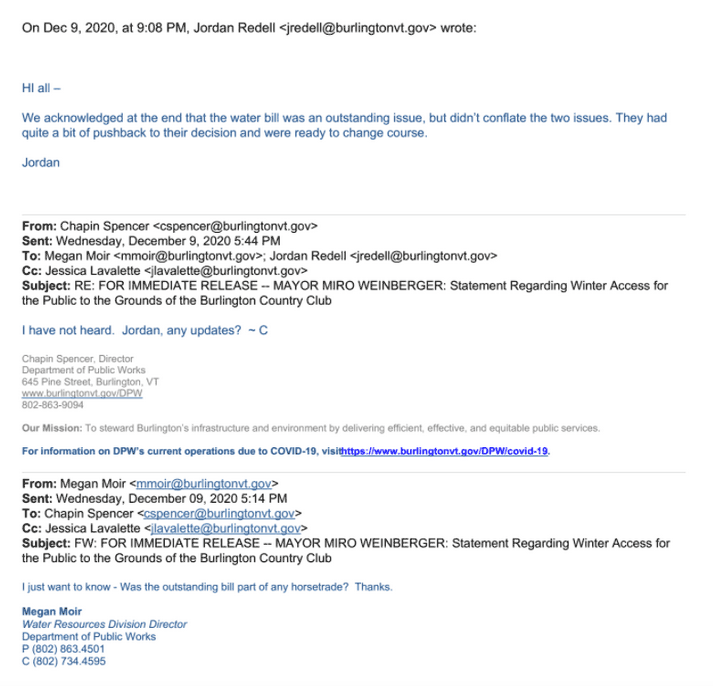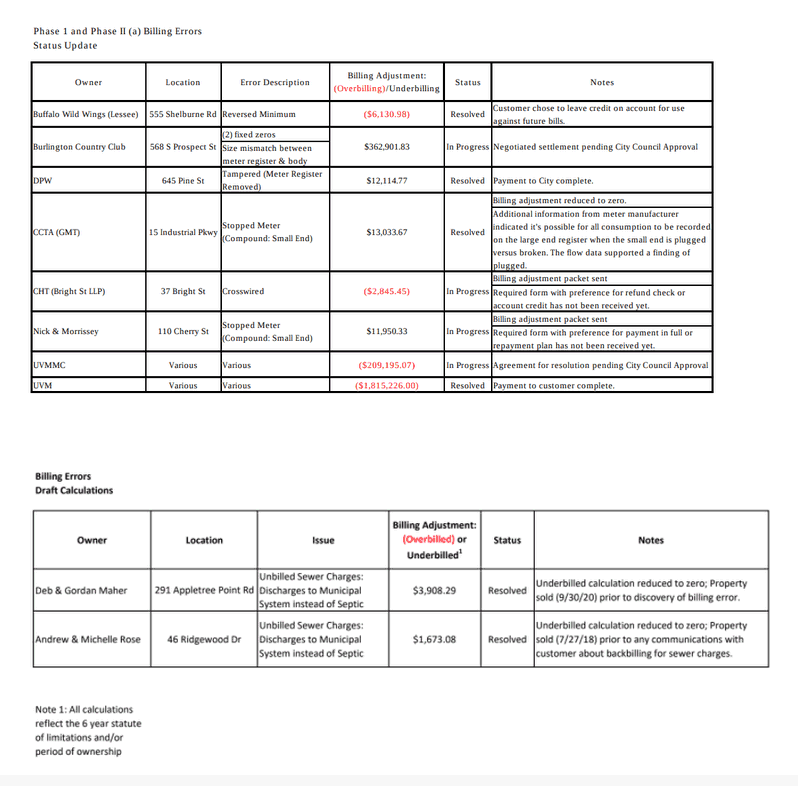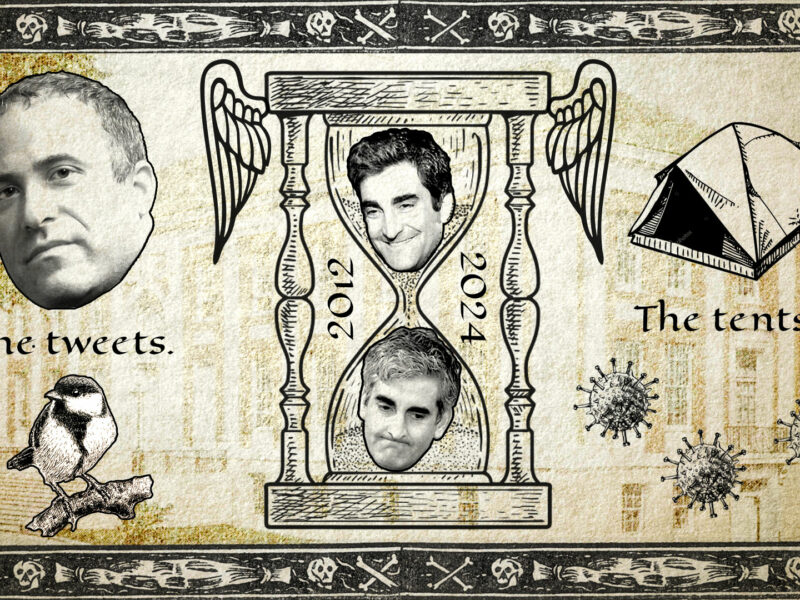Heading into Town Meeting Day in March 2022, the City of Burlington was facing a $7 million budget shortfall, incurred mainly due to Covid-19 and rising, widespread inflation. In response, voters approved a four-cent increase in the municipal property tax to cover the gap. Yet while the city was struggling to raise money to cover its needs, the Weinberger administration gave a break to one of the city’s most elite and exclusive institutions: it provided a $210,000 water bill write-off to the Burlington Country Club (BCC).
In December 2018, Burlington’s Department of Public Works Water Division learned that they had undercharged the 220-acre country club, located at the southern end of Burlington’s hill section, by a factor of ten. This mistake, described as “a significant meter billing configuration error” by the city, had possibly been going on for at least nine years before it was found: BCC officials stated they had raised concerns to the city on multiple occasions as early as 2009, though Public Works claims to not have any records of such. The statute of limitations for recovering under-billing is six years, so the City of Burlington calculated the six-year bill to be a little over $360,000, roughly $60,000 per year. Assuming similar annual water usage and billing stretching back to 2009, by waiting so long to discover or acknowledge the error the city likely lost an additional approximately $180,000 in now-unrecoverable revenue to the country club, bringing the total under-billing to roughly $440,000.
Facing what was, in essence, a public subsidy of a privately-owned golf course to the tune of almost a half million dollars, the city opted not to take the club to court to recover what was owed. Instead, it chose to settle for $150,000 from BCC, less than half of the $360,000 they could have retrieved by law. The basis for this decision was outlined in a November 2021 letter to the board of finance: “Based on initial extended rounds of negotiation and analysis of potential legal risk factors, it became clear that pursuit of the full amount of the under-billing would require litigation and significant staff time with no guarantee of an affirmative legal finding.” The letter does not contemplate whether that decision incentivizes other utility customers to not bring future instances of underbilling to the city’s attention.
These negotiations overlapped with a conflict between the city and BCC in which the country club wanted to shut down public use due to the ongoing Covid-19 pandemic. When the city described the resolution of this dispute in a carefully worded press release, Megan Moir, director of Burlington’s Water Resources Division, questioned whether “the outstanding bill [was] part of any horsetrade,” according to emails obtained by The Rake Vermont. Weinberger’s Chief of Staff Jordan Redell replied to Moir, claiming the administration did not “conflate the two issues.”


The Burlington Country Club was founded in 1924 when its members purchased 150 acres from the Fairholt Estate and had the famous golf architect Donalf Ross design a course for them. According to a 2015 Burlington Free Press article, annual full membership dues that year were $5,000 and the club had 650 paying members.
An investigation by The Rake Vermont found that the City of Burlington has only written off a handful of water bills in the past five years. Two of them were for residential properties in the New North End, $1,500 and $3,900 respectively, and were written off since the errors were discovered after the homes had been sold. Another was for the Chittenden County Transportation Authority, a $13,000 bill that was reduced to zero.
The only private property owner expected to return the full amount of underbilling was Nick & Morrissey, for a commercial building on Church Street owned by Church Street Marketplace Commission Chair Jeff Nick. The City expected Nick to repay nearly $12,000 in water fees.
When asked about how this write-off could affect neighbors’ property and water bills, DPW Director Chapin Spencer replied in an email to The Rake Vermont he held no responsibility for the BCC billing errors and did not offer anything more specific than that “there were facts that indicated to the Administration, and ultimately to the City Council with their approval, that this settlement was in the best interest of Burlington ratepayers.”
City councilors representing the Burlington Country Club’s neighborhood did not respond to requests for comment. Burlington Country Club also did not respond to requests for comment.
The Weinberger administration has not hesitated to pursue lawsuits in the past, like when it sued CityPlace for breach of contract. In this case, the public is left to wonder why forgoing $210,000 in payments from one of the city’s largest landowners was in the “best interest of Burlington ratepayers.”
Emily is a writer and organizer on the editorial collective of The Rake Vermont.



